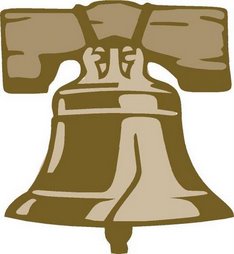Sheldon Richman [1] is the editor of The Freeman and “In brief,” and author of “Fascism” [2] in The Concise Encyclopedia of Economics. TGIF appears Fridays. Comments welcome at “Anything Peaceful.” [3]
The New Deal did not end the Great Depression. This statement will come as no shock to FEE supporters, but it will to the many people who never encountered it before. Now people are encountering it — in newspaper columns and news-talk shows.
Why, after years of being taught that Franklin Roosevelt’s economic intervention saved the country from disaster, is the general public now being told — by FDR fans, not critics — that this is not the case?
It’s the Rooseveltians’ way of helping President Obama get over any fear he has of deficit spending. Paul Krugman [4], the newest Nobel laureate, a Keynesian, and a New York Times columnist, is explicit about this. “[H]ow much guidance does the Roosevelt era really offer for today’s world?” Krugman asks. “The answer is, a lot. But Barack Obama should learn from F.D.R.’s failures as well as from his achievements: the truth is that the New Deal wasn’t as successful in the short run as it was in the long run. And the reason for F.D.R.’s limited short-run success, which almost undid his whole program, was the fact that his economic policies were too cautious.”
By “too cautious” Krugman means that FDR’s deficits were too small. Roosevelt ran deficits (except for one year), but they were about the same size as those run by his predecessor, Herbert Hoover. Roosevelt’s biggest deficit, in 1936, was “only” 4.4 percent of GDP, Jim Powell points out in FDR’s Folly. Both Hoover and Roosevelt were big spenders — FDR doubled spending by 1940 — but they were also big taxers, which kept the deficit from growing. This is confirmed by University of Arizona economist Price Fishback [5], who wrote, “Once we take into account the taxation during the 1930’s, we can see that the budget deficits of the 1930’s and one balanced budget were tiny relative to the size of the problem….”
Roosevelt was quite a tax enthusiast. He levied or raised taxes on liquor, tobacco, gasoline, corporate dividends, estates, incomes (top rate 75 percent versus Hoover’s 63), “excess” profits, and undistributed profits. (The last tax was repealed in 1939.) And then there was the payroll tax that came in with Social Security. All in all, the New Deal more than tripled the tax burden from 1933 to 1940: $1.6 billion to $5.3 billion. Serious deficit-spenders don’t raise taxes. But Roosevelt did. Is it any wonder that net investment dropped $3.1 billion during the decade or that unemployment [6] was about as high in 1939 as it was in 1932?
Would Bigger Deficits Have Worked?
This raises the question of whether big-time deficit spending would have ended the Depression. Krugman and others think so. But how could it? Deficits are financed either by borrowing or by creating money out of nothing. When the government borrows money, that’s money no one else can borrow and invest. Where’s the gain? Moreover, the money is put to purposes selected by politicians, not entrepreneurs trying to please consumers.
When the government creates money, three things happen. First, the new money lowers interest rates below the level justified by society’s time preference; that produces perverse incentives to invest in longer-term projects far from the consumer-goods level. Second, the money early on changes relative prices (rather than raising prices evenly) because particular economic interests get it sooner than everyone else. Third, prices later rise generally, reducing everyone’s purchasing power. The result is a distorted structure of production and a boom that is unsustainable because it’s based not on real savings but on fiat money. When the inflation stops, the bust follows.
Since the New Deal didn’t end the Depression and a New Deal on steroids wouldn’t have done so, President Obama should pay no heed to Krugman and his Keynesian economic advisers. The way to wake up the economy is reduce the total government burden on producers and consumers by, among other things, slashing spending, taxes, and borrowing.
Article printed from Foundation for Economic Education: http://fee.org
URL to article: http://fee.org/articles/tgif/news-flash-fdr-didnt-fix-the-economy/
URLs in this post:
[1] Sheldon Richman: mailto:srichman@fee.org?subject=
[2] “Fascism”: http://www.econlib.org/library/Enc/Fascism.html
[3] “Anything Peaceful.”: http://www.feeblog.org/
[4] Paul Krugman: http://www.nytimes.com/2008/11/10/opinion/10krugman.html
[5] Price Fishback: http://www.independent.org/newsroom/article.asp?id=2377
[6] unemployment: http://www.econreview.com/events/ur1932b.htm



No comments:
Post a Comment